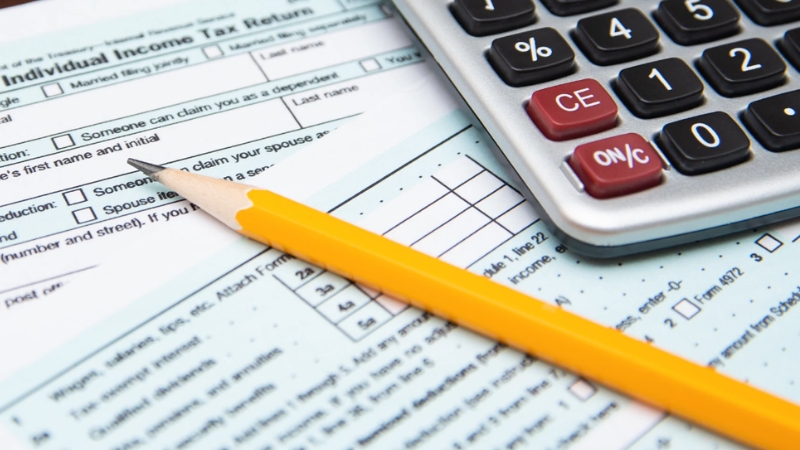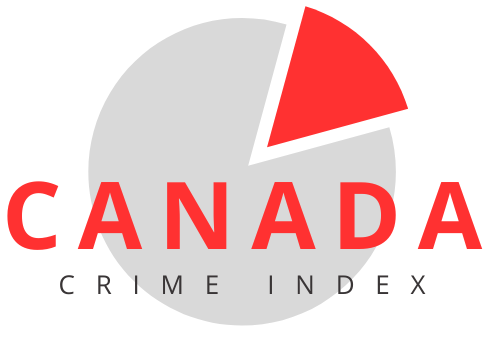Every Canadian resident has a legal duty to report income accurately during tax season. The Canada Revenue Agency enforces strict rules on what qualifies as taxable income.
Many types of payments fall under mandatory disclosure. Some sources, however, do not count as income and require no reporting. Understanding this distinction helps avoid penalties and supports accurate filing.
This guide explains which payments you must declare on your tax return. It also identifies exceptions that do not require disclosure.
Table of Contents
ToggleWhat the CRA Considers Taxable Income
Every Canadian resident must report worldwide income on their annual tax return. The CRA treats many income sources as fully taxable.
Each type carries its own reporting line and rules. Missing any of these could lead to reassessments, penalties, or interest charges.
Employment Income
- T4 slips must be included for any job, full-time or part-time.
- Bonuses, commissions, and overtime pay also count.
- Tips received in service industries must be reported, even without formal documentation.
Self-Employment Income
- Includes freelance services, business profits, or contract work.
- The CRA expects all business-related earnings, even if informal or cash-based, to be reported on Form T2125.
- Gig economy work, like delivery, consulting, or digital services, falls under this category.
Investment Income
- Includes interest from savings, dividends from stocks, and capital gains on asset sales.
- Line 12100 covers interest and other investment income.
- Capital gains must be tracked and reported using Schedule 3 of the T1 return.
Rental Income
- Any rent collected on residential or commercial property is fully taxable.
- This includes vacation rentals, basements, and sublets.
- Net income or loss is reported using Form T776.
Pension and Retirement Income
- CPP, OAS, RRIFs, annuities, and workplace pensions must all be declared.
- Foreign pensions are taxable unless exempt by a tax treaty.
- Split pension income must follow CRA guidelines using Form T1032.
Other Taxable Income
- Death benefits over $10,000
- Royalties, honoraria, and appearance fees
- Scholarships and bursaries if above the exempt limits
- Occasional income, like selling scrap metal or art, if done with regularity or intent to earn
Even winnings you got from a lottery and other sorts of gambling is taxable. Therefore, next time you find a good deal on some online platform, such as the one currently available at casinobonusca.com, keep in mind that a part of your winnings will go to the government.
Declaring Foreign Income and Global Earnings

Any Canadian resident for tax purposes must include all income earned worldwide on their return. It does not matter where the income originated.
Types of Foreign Income That Must Be Reported
- Employment income earned abroad
- Self-employment income for services provided internationally
- Rental income from overseas property
- Foreign pensions or retirement fund withdrawals
- Dividends, interest, or capital gains on foreign investments
Currency Conversion Rules
- All foreign amounts must be converted to Canadian dollars using the Bank of Canada’s annual or daily exchange rates.
- Keep detailed records of the rate used, especially for multiple transactions.
Tax Credits for Foreign Taxes Paid
- Use Form T2209 to claim a foreign tax credit.
- This avoids double taxation on income already taxed by another country.
- Only the lesser of the foreign tax paid or Canadian tax payable on the same income can be credited.
Residency Status Matters
- If the CRA classifies you as a resident, then global income rules apply fully.
- Deemed residents (students, diplomats, military, etc.) also fall under these rules.
- Non-residents only report Canadian-source income.
Documentation You Must Keep
- Foreign pay slips or employment letters
- Property lease agreements and receipts
- Bank statements showing interest or dividends
- Pension award letters and statements
- Foreign tax documents showing the amount withheld
Government Payments You Must Report
View this post on Instagram
A post shared by INC – Immigration News Canada (@immigrationnewscanada.ca)
Certain government-issued payments count as taxable income and must be declared on your return.
Each one appears on a specific slip and must be entered on the correct line of the T1 form. These payments often relate to employment support, retirement, or injury benefits.
Employment Insurance (EI)
- All regular EI payments are taxable and reported on Line 11900.
- Seasonal workers, those on parental or sick leave, and those temporarily unemployed must include all EI payments received.
- CRA sends a T4E slip outlining the total amount for the year.
Workers’ Compensation
- Workers’ compensation payments in most provinces are non-taxable, but they still must be reported on Line 14400.
- CRA uses the amount for income-tested benefits and credit calculations.
- You will receive a T5007 slip, which lists the payment total for informational purposes.
Training and Skills Development Support
- Financial assistance for retraining, often through government employment programs, may be partially or fully taxable.
- Some amounts may be considered scholarships and taxed as such.
- Always check if a T4A slip has been issued.
Provincial Income Support
- Social assistance payments, such as disability or income replacement, are not taxed but must be reported on Line 14500.
- These are also listed on the T5007 slip.
- CRA uses this information when calculating the GST/HST credit, the Canada Workers Benefit, and other support programs.
Income That Does Not Require Reporting

Even if they provide financial value, you do not need to declare them on your return.
However, if those funds generate income later (such as interest or dividends), that secondary income will be fully taxable.
Personal Gifts and Inheritances
- Cash gifts or inherited money received from an individual are not taxed.
- There is no gift tax in Canada, and there are no limits on gift size.
- CRA does not require reporting unless the gift earns income through interest or investing.
Lottery and Gambling Winnings
- Lottery wins, casino prizes, and game show awards are fully non-taxable.
- Professional gamblers or people who earn a living through gambling must still report income, but casual wins do not count.
Life Insurance Payouts
- Proceeds received after someone’s death under a life insurance policy are non-taxable.
- Any interest earned on that amount post-payment must be reported as regular investment income.
Non-Taxable Government Transfers
- Several federal benefits are excluded from income:
- Canada Child Benefit (CCB)
- GST/HST Credit
- Canada Carbon Rebate (CCR)
- CRA deposits these funds separately, and you will not receive a slip for them.
Strike Pay and Support from Unions
- Strike pay received during labor actions or picketing is not considered taxable.
- No need to include union support payments unless specified in a T4A slip.
Certain Legal Settlements
- Personal injury awards, human rights settlements, or other non-compensatory legal payments may fall outside taxation.
- CRA only taxes punitive damages, business-related settlements, or payments structured as wages.
Income Without a Tax Slip: Still Required to Declare
@itsdanielleryan Replying to @Tanvir’s Bucket List as an influencer or content creator in Canada, you are responsible for reporting all forms of income (both monetary and non-monetary) on your tax return during tax season. This can include PR and gifted Collabs. Always speak to a professional accountant or bookkeeper to make sure that you are properly reporting all income in your creator business. ##canadiantaxtips##canadiantaxes##canadiancontentcreator##influencertaxes##canadianinfluencer##canadiancreatortips##canadatax##taxescanada ♬ original sound – buj
The CRA does not rely solely on slips like T4 or T5. You are required to report all income, even if no official form was issued. Any unreported amount may trigger penalties, interest, or audits.
Cash Jobs and Informal Employment
- Payment in cash for labor, tutoring, housekeeping, or repair work is fully taxable.
- The absence of a T4 slip does not remove the obligation to report that income.
- Use your own records or bank statements as proof of the amounts earned.
Tips and Gratuities
- The CRA requires tip income to be declared, whether collected through credit cards, pooled tip-outs, or direct cash.
- Workers in hospitality, salons, taxis, and service sectors must estimate and report all gratuities received.
Freelance and Gig Work
- Ride-sharing drivers, online sellers, graphic designers, or independent writers must report income even if under personal arrangements.
- No T4A or invoice required for income to be taxable.
- CRA considers consistent freelance work as self-employment and expects reporting on Form T2125.
Informal Rental Income
- Rent received without a lease or paid in cash is still reportable.
- CRA expects a full declaration of all rental earnings, regardless of property type.
- Use Form T776 to detail gross income, expenses, and net income or loss.
Common CRA Audit Triggers Related to Income
What triggers a CRA audit?
The Canada Revenue Agency (CRA) uses a sophisticated risk-assessment system to identify tax returns that are most likely non-compliant. While no tax return is completely audit-proof (some audits are random) here are some proven CRA tax audit triggers: pic.twitter.com/lXGyYoXXbv
— TaxPage (@Taxpage_com) September 15, 2024
The CRA selects returns for audit based on red flags, risk profiles, and inconsistencies. Most income-related audits stem from incomplete reporting or high-variance patterns. Avoiding these triggers helps protect your return from detailed examination.
Missing Slips or Underreported Income
- If your employer or institution submitted a T-slip and you left it off your return, the CRA will detect the mismatch.
- Unreported slips such as T4, T4A, T5, or T3 are top triggers for reassessments.
Foreign Income Left Out
- If you filed taxes in another country but omitted the income in Canada, CRA may receive alerts through information-sharing treaties.
- Omitting rental income, foreign pensions, or dividends can lead to double investigations.
Large Deductions With No Proof
- Claims of business expenses, rental write-offs, or self-employment losses without matching records raise questions.
- CRA requires documented justification for all deductions and credits claimed.
Unusual Income Fluctuations
- A sudden drop or increase in reported income year-to-year may prompt CRA review.
- Consistency in earnings matters, especially for high-income professions, real estate, or sole proprietors.
Tracking Income Correctly and Keeping Records

The CRA requires you to maintain records for all income, including employment, self-employment, rental, investment, and foreign sources.
Keeping those records organized protects you during audits and allows full access to eligible deductions or credits.
Invoices and Receipts
Every business transaction should have a documented trail. If you operate as a freelancer, independent contractor, or landlord, issue invoices for each service or rental cycle.
Collect receipts when you pay for supplies, repairs, or services tied to income generation.
The CRA recommends keeping all such records for at least six years in case of audit or review. Physical receipts, scanned copies, or PDF confirmations are acceptable if they clearly show dates, amounts, and business purpose.
Banking and Deposit Logs

Using a dedicated account for business or self-employment income helps establish a transparent income trail. Every deposit, payment, or refund should match records submitted during tax filing.
Spreadsheets or logbooks tracking deposits by date and client can prevent discrepancies later. When cash payments are involved, deposit them promptly into an account so they appear on statements and reinforce your reported income totals.
Investment and Foreign Income Tracking
For income received through stocks, bonds, mutual funds, or international holdings, statements from brokerages or financial institutions must be stored. Foreign income requires additional care.
You must document the amount earned in the original currency, the exchange rate applied, and the converted amount in Canadian dollars. Keeping confirmation emails, pension letters, or dividend summaries helps prove the amount and source if questions arise later.
Mobile Apps and Software
Digital tools can simplify the process of tracking multiple income streams. Accounting software like QuickBooks, FreshBooks, or Wave allows you to log income in real time and generate accurate totals for each tax period.
For rental income, property management apps often include built-in income trackers. Using structured digital tools gives you easy access to summaries, timelines, and exportable data that CRA agents can verify.
Correcting Mistakes and Handling CRA Notices

CRA offers structured ways to correct returns, submit additional information, or respond to reassessments.
Addressing issues early helps reduce penalties and avoid long-term tax complications.
Filing a T1 Adjustment
If you realize you left out income or included incorrect figures, you must file a correction using the T1 Adjustment form. This can be done online through CRA’s My Account platform or by mailing a paper copy. In either case, include an explanation of what is being corrected and why.
Supporting documents, such as a missed T4 slip or updated invoice, must also be included to complete the adjustment process. The CRA uses these corrections to update your return and issue a new Notice of Assessment when required.
Voluntary Disclosures Program (VDP)
For more serious omissions, such as several years of undeclared foreign income or substantial self-employment earnings not filed on time, the Voluntary Disclosures Program offers a way to fix your record.
If you apply before the CRA contacts you, the agency may waive penalties and reduce interest. Your disclosure must be complete, voluntary, and include all relevant years. The application is sent to the CRA’s designated Voluntary Disclosures Intake Center and requires full transparency.
CRA Reassessments and Notices
You may receive a Notice of Reassessment if CRA identifies differences between your return and their records. This notice outlines what was changed and why. Review the letter carefully.
If you disagree with the reassessment, you have the right to file an objection using Form T400A. Objections must be submitted within 90 days of the date shown on the reassessment notice.
Avoiding Interest and Penalties
Failure to report income accurately leads to immediate consequences. The CRA applies compound interest monthly on unpaid balances. Penalties also apply when income is repeatedly underreported, especially if done across multiple years.
Submitting adjustments as soon as an error is found and responding promptly to any CRA notices helps limit those financial penalties. Honest communication with CRA agents also improves the outcome of any tax correction process.
Last Words
Knowing what to declare and what to exclude keeps your return accurate and protects you from CRA penalties. Each type of income carries different rules, forms, and documentation requirements.
Tracking payments year-round, saving receipts, and using CRA-approved guidelines leads to smoother filing and fewer issues later. If you miss income or report it incorrectly, CRA offers ways to correct your return without unnecessary stress, as long as you act quickly and honestly.












